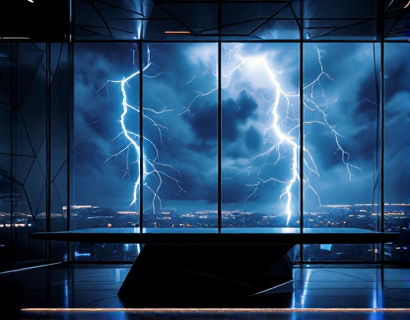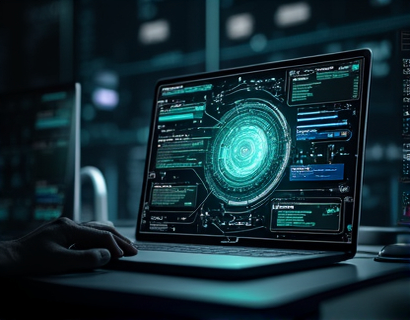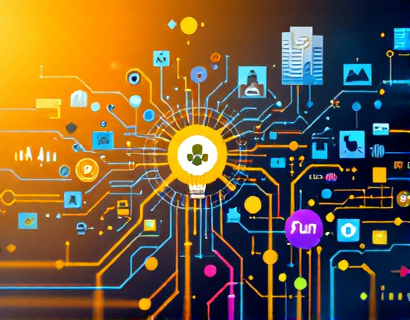Blockchain-Enhanced Online Notarization: A New Era for Document Security and Accessibility
The traditional notarization process, while crucial for ensuring the authenticity and legality of documents, has long been marred by inefficiencies, lack of transparency, and vulnerability to tampering. The advent of blockchain technology offers a revolutionary solution, transforming the way we approach document security and accessibility. This article delves into the intricacies of blockchain-enhanced online notarization, exploring how this technology is reshaping the landscape for legal professionals and businesses worldwide.
Understanding Blockchain Technology
At its core, blockchain is a decentralized digital ledger that records transactions across multiple computers in such a way that the registered transactions cannot be altered retroactively. This technology ensures transparency, security, and immutability, making it an ideal foundation for notarization services. Each block in the chain contains a cryptographic hash of the previous block, a timestamp, and transaction data, creating an unbreakable link that prevents any single entity from manipulating the data without detection.
Enhanced Security Through Decentralization
The decentralized nature of blockchain significantly enhances document security. Unlike traditional notarization, which relies on a central authority, blockchain distributes trust across a network of nodes. This means that no single point of failure exists, reducing the risk of data breaches and tampering. Each document notarized on a blockchain is encrypted and linked to the previous document, forming a chain of evidence that is nearly impossible to alter without consensus from the majority of the network.
Immutable Records and Transparency
One of the most significant advantages of blockchain-enhanced notarization is the creation of immutable records. Once a document is notarized and added to the blockchain, its contents cannot be changed or deleted. This immutability ensures that the document's authenticity and integrity are preserved over time. Additionally, the transparency of the blockchain allows all parties involved to verify the document's history and status in real-time, fostering trust and accountability.
Streamlined Notarization Process
The integration of blockchain technology streamlines the notarization process, making it more efficient and user-friendly. Traditional notarization often involves multiple steps, including physical document submission, verification by a notary, and subsequent storage. With blockchain, these steps are simplified and automated. Documents can be uploaded, verified, and notarized electronically, reducing the time and cost associated with the process. This efficiency is particularly beneficial for businesses and legal professionals who handle a high volume of documents.
Accessibility and Global Reach
Blockchain-enhanced notarization breaks down geographical barriers, making document verification and authentication accessible to a global audience. Documents notarized on the blockchain can be accessed and verified from anywhere in the world, as long as there is an internet connection. This global reach is especially valuable for international businesses and legal matters, where documents often need to be recognized across different jurisdictions. The standardized and transparent nature of blockchain ensures that documents are accepted and trusted universally.
Reduced Fraud and Error Rates
The use of blockchain in notarization significantly reduces the risk of fraud and errors. The cryptographic techniques employed in blockchain ensure that each document is uniquely identified and linked to its previous version, making it nearly impossible to forge or alter documents. This level of security is crucial for legal and financial transactions, where the authenticity of documents can have significant consequences. Moreover, the automated verification processes reduce human error, further enhancing the reliability of the notarization service.
Cost Efficiency
Traditional notarization services can be expensive, especially when considering the costs associated with physical document handling, storage, and verification. Blockchain-enhanced notarization eliminates many of these costs by digitizing the process. The reduced need for physical infrastructure and intermediaries translates to lower operational costs, which can be passed on to users. This cost efficiency makes high-quality notarization services more accessible to a broader range of clients, including small businesses and individuals.
Regulatory Compliance and Trust
Regulatory compliance is a critical aspect of notarization, and blockchain technology helps ensure that all documents meet the necessary standards. The transparent and immutable nature of blockchain makes it easier for regulatory bodies to audit and verify documents. This compliance not only enhances trust in the notarization process but also simplifies the regulatory landscape for service providers. Legal professionals and businesses can rest assured that their documents adhere to the highest standards of authenticity and legality.
User Experience and Adoption
The user experience of blockchain-enhanced notarization is designed to be seamless and intuitive. Users can easily upload, verify, and manage their documents through a user-friendly interface. The process is secure, with end-to-end encryption ensuring that sensitive information remains confidential. As more organizations and individuals recognize the benefits of blockchain technology, adoption is expected to grow. Educational initiatives and partnerships with legal and business communities will play a crucial role in promoting the widespread use of this innovative service.
Challenges and Considerations
While the potential of blockchain-enhanced notarization is vast, there are several challenges and considerations to address. One key issue is the need for widespread education and understanding of blockchain technology among legal professionals and businesses. Additionally, regulatory frameworks must evolve to accommodate this new form of notarization, ensuring that it meets all legal requirements and standards. Technical challenges, such as scalability and interoperability between different blockchain platforms, also need to be addressed to create a robust and unified system.
Future Prospects
The future of document security and accessibility looks promising with the continued development and adoption of blockchain technology. As more stakeholders recognize the benefits of blockchain-enhanced notarization, we can expect to see further innovations and integrations. The potential for blockchain to revolutionize not only notarization but also other areas of document management, such as contracts and property records, is immense. The combination of security, transparency, and efficiency makes blockchain a cornerstone technology for the next generation of digital services.
In conclusion, blockchain-enhanced online notarization represents a significant leap forward in document security and accessibility. By leveraging the unique properties of blockchain, this technology offers a reliable, efficient, and transparent solution that addresses many of the shortcomings of traditional notarization. As the technology continues to mature and gain acceptance, it will play an increasingly vital role in ensuring the integrity and authenticity of digital documents, benefiting legal professionals, businesses, and individuals alike.










































